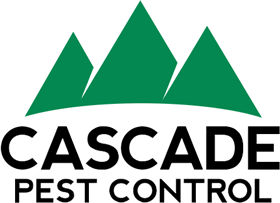Author: Kurt Treftz, Cascade Pest Control
Specific Health Crisis Information ‘from the ground’ regarding sanitation/health consequences of current and upcoming rodent and insect pest issues.
Dear XXX Health Department,
I have been in the local pest control industry for about 43 years so I have both an up close as well as a solid overall understanding of our current pest issues and how they can affect public health and safety.
Importantly, in other cases of epidemics (and/or pandemics) it was not always the original contagion that sickened, injured or even killed people. It often was the sudden decline in sanitation which allowed other infections to spread, thus compounding the original crisis. Controlling pests, particularly rats, mice and flies (for example) is a critical part of sanitation.
It has been widely documented that the Puget Sound basin with it’s climate and abundant water—especially the urban and suburban areas—are very heavily populated with rats (usually both Norway and roof-rats). What is largely unknown among our citizens is the extent of the rodent problem and the fact that without thousands of folks choosing to hire pest control professionals to routinely control rodents, our cities and housing developments would quickly be overrun.
It is estimated that someplace between 100,000 and 150,000 homes are either routinely or occasionally serviced to control rats and/or mice in the greater Seattle area alone. This means that approximately 1 in 8 homes are serviced with exterior bait stations which actually suppress the rodent population for the rest of their particular neighborhoods. Tacoma and other cities and suburban areas how the same situation.
Importantly, it is the collective effort provided by commercial pest control companies that is suppressing what is otherwise the highly successful adaptation of two invasive species—Norway rats and roof rats—which cause significant damage (mostly to home insulation) and spread germs by contaminating surfaces. Even so much as postponing these efforts when dealing with species that multiply rapidly (especially in spring and summer) would have catastrophic results.
In the course of providing rodent pest management—rodent population suppression at the exterior of structures and rodent control (or extermination) for rats already entered—it is normal for us to replenish rat bait in bait stations every month or two. What this means is that the pest control industry is constantly suppressing rat populations in cities and suburban areas. And we are constantly suppressing mice populations in outer suburban and rural areas. If this were to suddenly stop there is no doubt that rodent populations would increase exponentially.
Insect problem as we come into the spring/summer—
While many insects thrive as the weather becomes warmer many are simply a nuisance, but others can spread disease or cause bites and stings. Among these are ticks, fleas, wasps and yellow jackets, and flies. Cockroaches are mostly found in multi-family buildings and can both spread disease and cause asthmatic responses in people.
What’s critically important here is the fact that private industry is currently employed to suppress and/or control a wide variety of pestilence issues. And, importantly, health departments are not equipped to step in to take this over, especially at this present time.
As you consider next steps regarding emergency response and potential restrictions on business operations in your state, we respectfully request that the pest control industry be recognized as an essential industry, providing a service that is indispensable in the effort to protect public health and our nation’s food supply.
Appended below is the language that was used in San Francisco and the California municipalities that have shelter in place orders.
For the purposes of this Order, “Essential Businesses” means: i. Healthcare Operations and Essential Infrastructure; ii. Grocery stores, certified farmers’ markets, farm and produce stands, supermarkets, food banks, convenience stores, and other establishments engaged in the retail sale of canned food, dry goods, fresh fruits and vegetables, pet supply, fresh meats, fish, and poultry, and any other household consumer products (such as cleaning and personal care products). This includes stores that sell groceries and also sell other non-grocery products, and products necessary to maintaining the safety, sanitation, and essential operation of residences; iii. Food cultivation, including farming, livestock, and fishing; iv. Businesses that provide food, shelter, and social services, and other necessities of life for economically disadvantaged or otherwise needy individuals; v. Newspapers, television, radio, and other media services; vi. Gas stations and auto-supply, auto-repair, and related facilities; vii. Banks and related financial institutions; viii. Hardware stores; ix. Plumbers, electricians, exterminators, and other service providers who provide services that are necessary to maintaining the safety, sanitation, and essential operation of residences, Essential Activities, and Essential Businesses.
Respectfully submitted,
Kurt Treftz
Cascade Pest Control
425.260.0849
